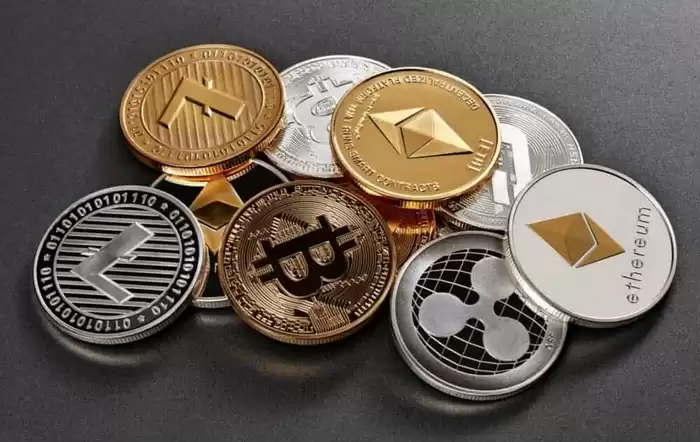-
 bitcoin
bitcoin $87959.907984 USD
1.34% -
 ethereum
ethereum $2920.497338 USD
3.04% -
 tether
tether $0.999775 USD
0.00% -
 xrp
xrp $2.237324 USD
8.12% -
 bnb
bnb $860.243768 USD
0.90% -
 solana
solana $138.089498 USD
5.43% -
 usd-coin
usd-coin $0.999807 USD
0.01% -
 tron
tron $0.272801 USD
-1.53% -
 dogecoin
dogecoin $0.150904 USD
2.96% -
 cardano
cardano $0.421635 USD
1.97% -
 hyperliquid
hyperliquid $32.152445 USD
2.23% -
 bitcoin-cash
bitcoin-cash $533.301069 USD
-1.94% -
 chainlink
chainlink $12.953417 USD
2.68% -
 unus-sed-leo
unus-sed-leo $9.535951 USD
0.73% -
 zcash
zcash $521.483386 USD
-2.87%
What Is an Asset?
Assets, valued and owned entities, encompass physical possessions like property and equipment, as well as intangible holdings such as investments and copyrights.
Oct 17, 2024 at 01:24 pm

An asset is anything that has value and can be owned or controlled by an individual or entity. Assets are typically used to generate income or provide financial benefits.
2. Types of AssetsAssets can be classified into two main categories:
Current Assets: Convert into cash within one year. Examples include cash, accounts receivable, and inventory.
Non-Current Assets: Cannot be easily converted into cash within one year. Examples include property, equipment, and investments.
Value: Assets have intrinsic value based on their ability to generate income or provide economic benefits.
Ownership or Control: Individuals or entities must have ownership or control over the asset to derive its benefits.
Liquidity: The ease with which an asset can be converted into cash or used to pay debts.
Usage: Assets can be used for a variety of purposes, such as generating revenue, increasing productivity, or providing security.
Assets play a crucial role in personal and business finance:
Income Generation: Assets, such as investments and business ventures, can generate income.
Security: Assets can provide financial security and protection against unexpected events or downturns.
Investment: Assets can be used for investment purposes, allowing individuals or entities to grow their wealth over time.
Business Operations: Businesses rely on assets to conduct operations and achieve their goals.
Cash
Accounts receivable
Inventory
Property
Equipment
Investments
Copyrights
Trademarks
Patents
Disclaimer:info@kdj.com
The information provided is not trading advice. kdj.com does not assume any responsibility for any investments made based on the information provided in this article. Cryptocurrencies are highly volatile and it is highly recommended that you invest with caution after thorough research!
If you believe that the content used on this website infringes your copyright, please contact us immediately (info@kdj.com) and we will delete it promptly.
- 2026 Crypto Landscape: Identifying Mispriced Opportunities Amidst Market Shifts
- 2026-02-11 22:00:01
- Bitcoin Price Prediction 2040: Will BTC Hit $1 Million Amidst Shifting Market Dynamics?
- 2026-02-11 22:05:01
- Ethereum's Layer-2 Evolution: Navigating Gas Risks in a Scaling Era
- 2026-02-11 21:55:01
- Big Apple Buzz: LayerZero's 'Zero' Blockchain, Backed by Citadel and ARK, Eyes Global Finance Takeover
- 2026-02-11 22:00:01
- Bitcoin Under Siege: Bearish Indicators Mount as Market Fears Deeper Correction
- 2026-02-11 21:55:01
- Bitcoin OG Erik Voorhees Bets Big on Gold, Sparking Crypto Conversations
- 2026-02-11 22:05:01
Related knowledge

What is the future of cryptocurrency and blockchain technology?
Jan 11,2026 at 09:19pm
Decentralized Finance Evolution1. DeFi protocols have expanded beyond simple lending and borrowing to include structured products, insurance mechanism...

Who is Satoshi Nakamoto? (The Creator of Bitcoin)
Jan 12,2026 at 07:00am
Origins of the Pseudonym1. Satoshi Nakamoto is the name used by the individual or group who developed Bitcoin, authored its original white paper, and ...

What is a crypto airdrop and how to get one?
Jan 22,2026 at 02:39pm
Understanding Crypto Airdrops1. A crypto airdrop is a distribution of free tokens or coins to multiple wallet addresses, typically initiated by blockc...

What is impermanent loss in DeFi and how to avoid it?
Jan 13,2026 at 11:59am
Understanding Impermanent Loss1. Impermanent loss occurs when the value of tokens deposited into an automated market maker (AMM) liquidity pool diverg...

How to bridge crypto assets between different blockchains?
Jan 14,2026 at 06:19pm
Cross-Chain Bridge Mechanisms1. Atomic swaps enable direct peer-to-peer exchange of assets across two blockchains without intermediaries, relying on h...

What is a whitepaper and how to read one?
Jan 12,2026 at 07:19am
Understanding the Whitepaper Structure1. A whitepaper in the cryptocurrency space functions as a foundational technical and conceptual document outlin...

What is the future of cryptocurrency and blockchain technology?
Jan 11,2026 at 09:19pm
Decentralized Finance Evolution1. DeFi protocols have expanded beyond simple lending and borrowing to include structured products, insurance mechanism...

Who is Satoshi Nakamoto? (The Creator of Bitcoin)
Jan 12,2026 at 07:00am
Origins of the Pseudonym1. Satoshi Nakamoto is the name used by the individual or group who developed Bitcoin, authored its original white paper, and ...

What is a crypto airdrop and how to get one?
Jan 22,2026 at 02:39pm
Understanding Crypto Airdrops1. A crypto airdrop is a distribution of free tokens or coins to multiple wallet addresses, typically initiated by blockc...

What is impermanent loss in DeFi and how to avoid it?
Jan 13,2026 at 11:59am
Understanding Impermanent Loss1. Impermanent loss occurs when the value of tokens deposited into an automated market maker (AMM) liquidity pool diverg...

How to bridge crypto assets between different blockchains?
Jan 14,2026 at 06:19pm
Cross-Chain Bridge Mechanisms1. Atomic swaps enable direct peer-to-peer exchange of assets across two blockchains without intermediaries, relying on h...

What is a whitepaper and how to read one?
Jan 12,2026 at 07:19am
Understanding the Whitepaper Structure1. A whitepaper in the cryptocurrency space functions as a foundational technical and conceptual document outlin...
See all articles










































































